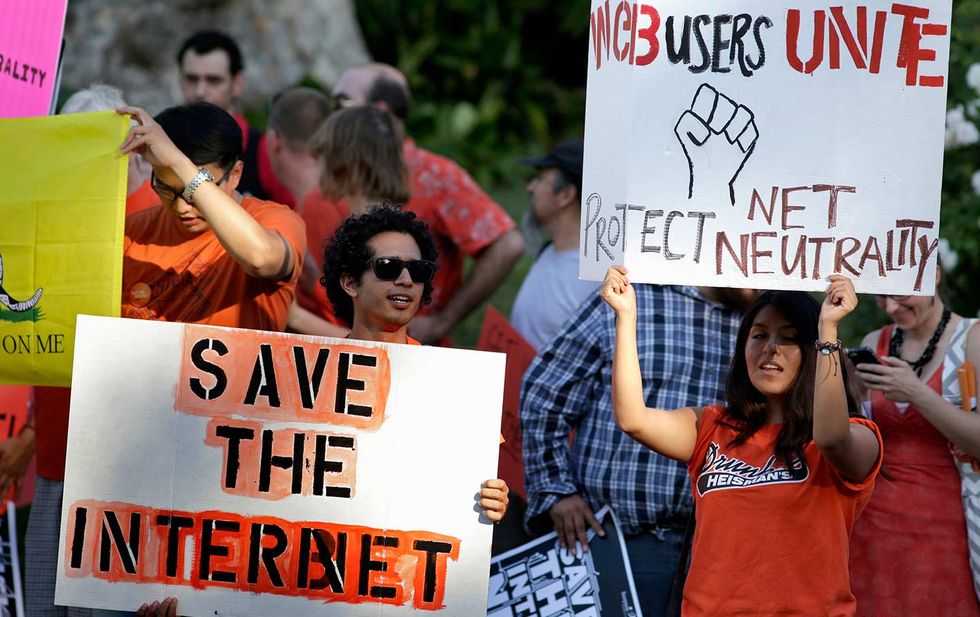Despite what many people may think, access to the Internet has never truly been equal. Large corporations like Comcast and Verizon already benefit from speedier Internet and connections than the rest of us. It has been this way for years.
Net neutrality is a policy that works to hold Internet distributors accountable and keep the Internet free and accessible for everyone, public and private sectors alike. Without net neutrality, companies that have already gained a significant upper hand as Internet Service Providers have more control over what users can see on the Internet and how fast we are able to access it. To make matters worse, net neutrality and thus, the “free” internet as we know it may be coming to an end.
As of December 14, 2017, the Federal Communications Commission (FCC) will vote on whether or not to revoke net neutrality. We cannot allow this to happen. Here's why.
1. Company corruption is happening right now. Revoking net neutrality will just give them more power.
Certain browsers, content, articles or ideas could, with net neutrality revocation, be blocked or prioritized by companies like Verizon, AT&T or Comcast that control the network. This means that opposing viewpoints, economic competitors or potentially damaging content could become inaccessible to the general public. Businesses will be given greater control over their web-based influence and their profit margins than ever before. They will be able and more likely to display the content from which they can profit the most.
Now before you say, "No, this wouldn't happen," think again. These companies don’t have your interests in mind as much as you would like to think. The same day the FCC announced its intention to repeal Net Neutrality, Comcast actually removed portions of their open Internet pledge, including the fact that they wouldn’t discriminate against low-income families or charge customers for faster Internet access. Without a law requiring companies to comply with freedom of speech, press, and information, what’s to stop them from using their control over the Internet to their advantage?
2. Loss of net neutrality promotes discrimination.
If net neutrality is revoked, powerful companies in charge of Internet services have the power to discriminate against those who either don’t hold their same values or don’t coincide with their profit margins. Smaller businesses and entrepreneurs will have to compete with larger, richer corporations for Internet access. Those who can afford it could be entitled to faster Internet access and can reach more sites and information than those who cannot. Such Internet “fast lanes” allow larger companies, like Google and Netflix, to communicate and excel faster than everyone else.
3. The Internet will not be fully accessible to everyone anymore.
We take for granted the privilege of a free and open Internet. We assume that our cable and phone companies aren’t monitoring or limiting what websites we use or what information we can find online. The Internet is what makes the freedom of speech and open debate possible. Without a stable and just way to communicate, research and question corruption, we cannot move forward as a society. We can't move backwards in this respect. Rejecting net neutrality would unravel all we have worked toward over the centuries to promote human rights. How will we investigate those in power if we cannot access information that proves their dishonesty? How can we trust those companies to respect our rights as citizens if they do not follow the net neutrality agreement? Time is running out and our freedom of speech is at stake.
What can you do?
Don’t let your voice be silenced. Sign a petition to fight back in the name of net neutrality. Call your Congress member and let them know how important open Internet is to you. Speak out on social media and amongst friends and family. Educate yourself on the topic at hand.
Internet is a right that shouldn’t be tampered with or limited by the powerful who want to turn a profit. The fight for a free and open web is a complicated one but is essential for the future.










































